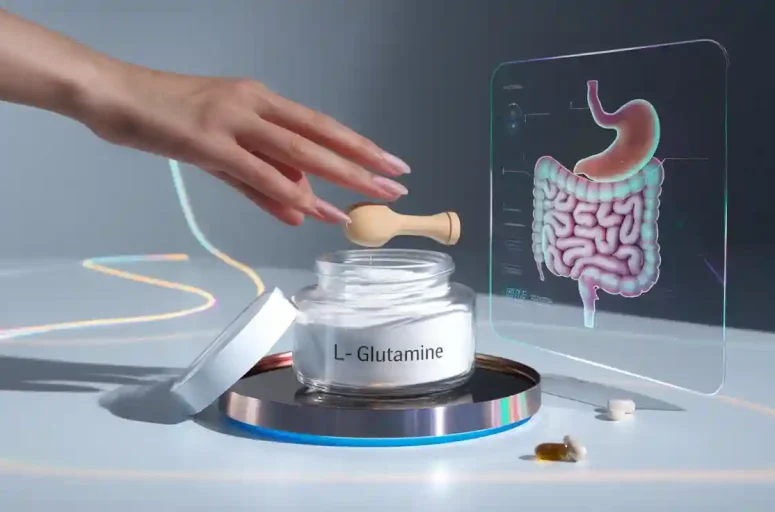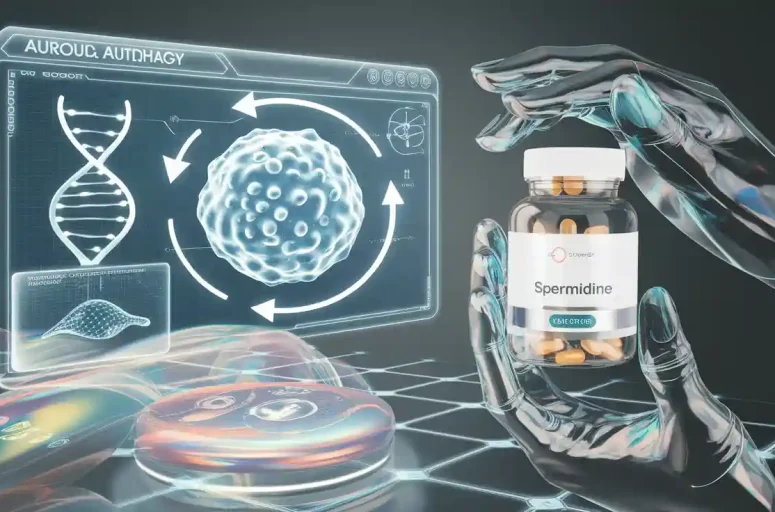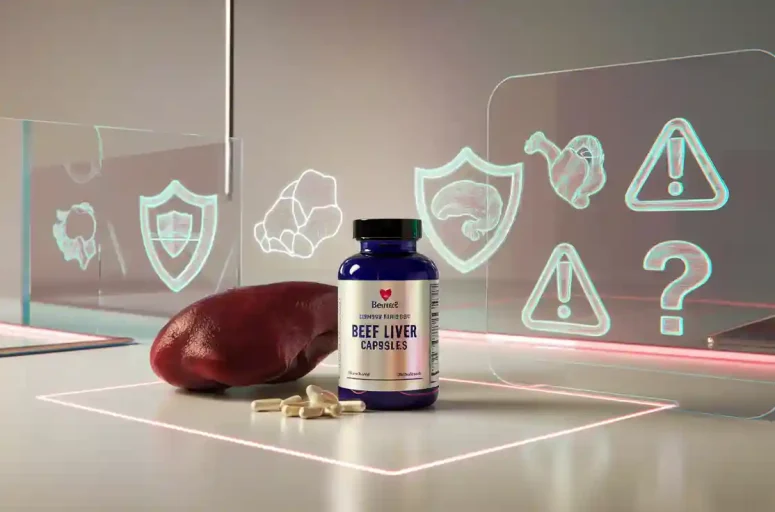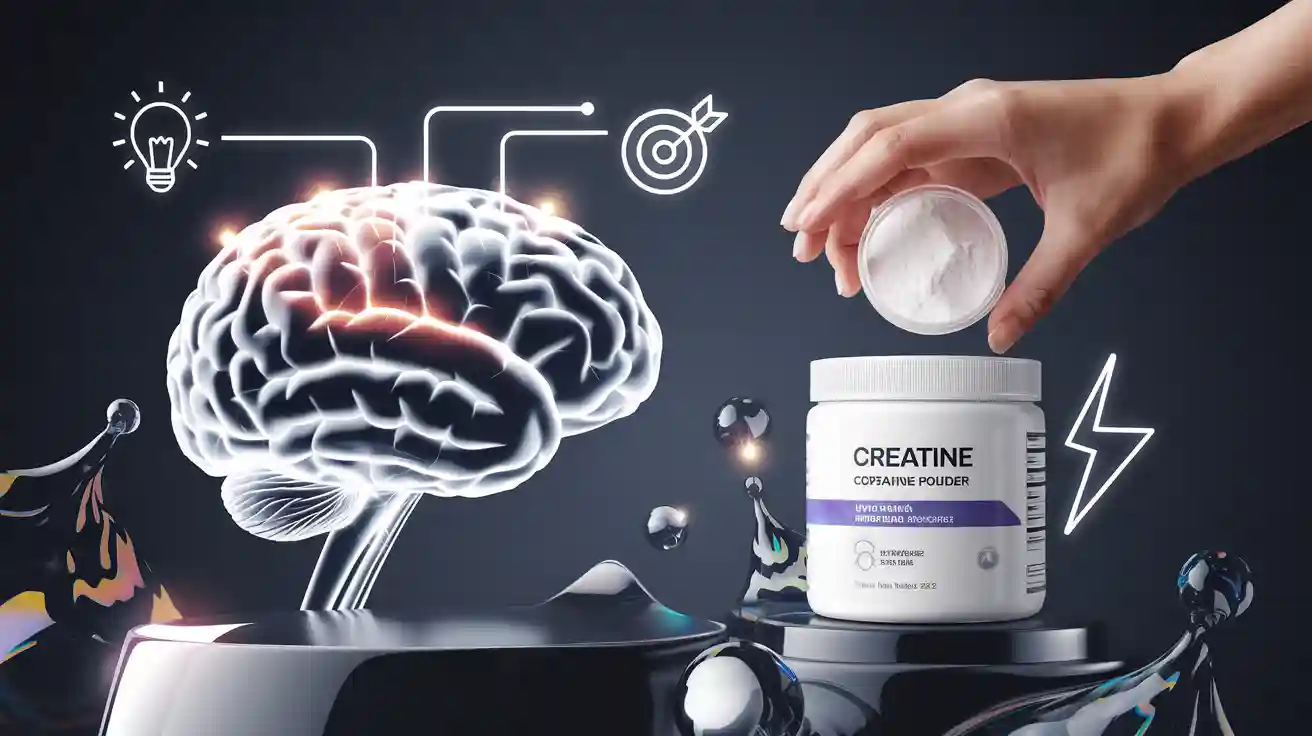
You might wonder about the creatine loading brain benefits. Studies suggest that creatine loading can support memory and thinking, especially in older adults. Some research highlights that higher doses may enhance memory, but the creatine loading brain benefits can vary depending on age and the amount used.
Some studies show improved cognitive function as part of creatine loading brain benefits.
Higher doses seem more effective in elderly people, further supporting creatine loading brain benefits.
Results differ due to age, dosage, and study design, which can influence the creatine loading brain benefits.
Medical Disclaimer: Always consult your healthcare provider before starting any supplement, including creatine.
Key Takeaways
Creatine loading can enhance memory and cognitive function, especially in older adults.
A loading phase of 20 grams per day for 5-7 days quickly boosts creatine levels in the brain.
Higher brain creatine levels may improve focus, reduce mental fatigue, and support clearer thinking.
Creatine loading can help maintain cognitive performance during stress or sleep deprivation.
Older adults and those under stress may experience the most significant benefits from creatine supplementation.
Creatine monohydrate is the most effective and cost-efficient form for brain health.
Stay hydrated while loading creatine to minimize side effects like bloating and stomach discomfort.
Always consult a healthcare provider before starting creatine to ensure it is safe for you.
What Is Creatine Loading?
Definition
Creatine loading is a method you use to quickly increase the amount of creatine stored in your muscles and brain. During this process, you take a higher dose of creatine for a short period, usually five to seven days. Most people use a dose of about 20 grams per day, split into four servings. After this phase, you switch to a lower daily dose to keep your creatine levels high.
You can think of creatine loading as a way to “fill up the tank” fast. Your body stores creatine in your muscles and brain, where it helps produce energy. By loading, you reach the maximum storage level more quickly than with regular, smaller doses.
Purpose for Brain Health
You may know creatine for its role in building muscle, but it also supports your brain. The main goal of creatine loading for brain health is to boost the amount of creatine in your brain cells. This extra creatine helps your brain make more energy, which can improve thinking, memory, and focus.
Researchers have found that higher brain creatine levels may help you think more clearly, especially when you feel tired or stressed. Some studies suggest that creatine loading brain benefits include better memory and less mental fatigue. Older adults and people under stress may notice the biggest improvements.
Tip: If you want to support your brain during exams, busy work weeks, or periods of poor sleep, creatine loading could help you stay sharp.
Loading vs. Regular Use
You have two main ways to take creatine: loading and regular use. With loading, you take a high dose for a short time, then switch to a lower dose. This method raises your creatine stores quickly, often within a week.
With regular use, you take a smaller dose, usually 3-5 grams per day, without a loading phase. Your body still increases its creatine stores, but it takes about three to four weeks to reach the same level as loading.
Method | Initial Dose | Time to Full Effect | Maintenance Dose |
|---|---|---|---|
Loading | 20g/day | 5-7 days | 3-5g/day |
Regular Use | 3-5g/day | 3-4 weeks | 3-5g/day |
Choosing between these methods depends on your goals. If you want fast results, loading works best. If you prefer a slower approach, regular use is a good option.
Creatine Loading Brain Benefits
Memory and Reasoning
You may notice sharper memory and better reasoning skills when you use creatine loading. Researchers found that creatine can cross the blood-brain barrier and increase the amount of creatine phosphate in your brain. This process helps your neurons make energy quickly during tasks that require intense thinking. You might find it easier to remember facts or solve problems, especially when you feel tired or stressed.
Creatine loading brain benefits include faster recall and improved accuracy in complex tasks.
Older adults often see the biggest improvements in memory and reasoning.
Studies show that creatine supplementation can boost memory scores, especially in people aged 66 to 76.
Note: Creatine loading may help you perform better on tests or during busy work periods by supporting your brain’s energy needs.
Mental Fatigue
Mental fatigue can slow you down and make it hard to focus. Creatine loading brain benefits include reducing mental fatigue, especially during long periods of concentration. When you take creatine, your brain stores more energy, which helps you stay alert and think clearly.
Evidence Description | Findings |
|---|---|
Creatine supplementation (8 g/day for 5 days) reduces mental fatigue | Subjects showed reduced mental fatigue during repeated mathematical tasks. |
Increased cerebral oxygenation in Cr-treated group | Infrared spectroscopy indicated higher blood oxygenation levels. |
Enhanced brain energy metabolism | Proton magnetic resonance spectroscopy confirmed increased creatine content in the brain. |
You may notice less tiredness and better focus during demanding tasks. Creatine loading can help you maintain your mental performance, even when you face stress or sleep loss.
Mood and Anxiety
Your mood and anxiety levels can change with creatine loading. Some studies suggest that creatine may improve mood and support cognitive function. Researchers found that creatine might have an antidepressant effect, especially when combined with standard treatments. A large study linked higher dietary creatine intake to lower rates of depression.
You may feel more positive and less anxious after creatine loading.
Some people report increased nervousness or mood swings, but these effects are rare.
Creatine loading brain benefits may include better emotional balance, especially during stressful times.
Medical Disclaimer: You should always talk to your healthcare provider before starting creatine or any supplement. Creatine may not be safe for everyone, and side effects can occur.
Cognitive Performance
You want your brain to work at its best. Cognitive performance means how well you think, learn, and solve problems. Many people look for ways to boost their brainpower, especially during times of stress or heavy workloads. Creatine loading can help you reach your mental peak.
Researchers have found that creatine supports several parts of cognitive performance. You may notice improvements in attention, quick thinking, and the ability to switch between tasks. These skills are important for students, professionals, and anyone who needs to stay sharp.
Attention and Focus: Creatine helps your brain cells make more energy. This extra energy can help you pay attention for longer periods. You may find it easier to concentrate on reading, studying, or working.
Processing Speed: Some studies show that people who use creatine loading finish mental tasks faster. You might notice quicker reaction times and better accuracy when solving problems.
Executive Function: This term covers skills like planning, organizing, and making decisions. Creatine loading brain benefits may include better executive function, especially when you feel tired or under pressure.
Cognitive Skill | Possible Benefit with Creatine Loading |
|---|---|
Attention | Improved focus and less distraction |
Processing Speed | Faster thinking and response times |
Executive Function | Better planning and decision-making |
Older adults and people who do not get enough sleep often see the biggest gains. If you work late, study for exams, or face stressful situations, creatine loading may help you stay alert and perform better.
Medical Disclaimer: Always talk to your healthcare provider before starting creatine or any supplement. Creatine may not be safe for everyone. Only use supplements based on verified facts and professional advice.
How Creatine Works in the Brain
Brain Energy
Your brain uses a lot of energy every day. It needs about 20 watts to keep all its activities running. When you think, learn, or solve problems, different parts of your brain work together as networks. If these networks do not get enough energy, you may notice problems with memory or thinking.
Phosphocreatine and ATP
Creatine helps your brain make and store energy. It works by increasing levels of phosphocreatine, which acts as a backup energy source. When your brain needs extra power, phosphocreatine helps produce ATP, the main energy molecule. This process supports quick thinking and sharp memory.
Creatine supplementation can boost cognitive performance, especially short-term memory and intelligence.
You may benefit more if you eat less creatine in your diet, such as if you are vegetarian or vegan.
Creatine acts as a reserve energy source for your neurons, helping them during tough mental tasks or when facing brain diseases.
Tip: If you want to support your brain during exams or long workdays, creatine can help your neurons stay energized.
Reducing Oxidative Stress
Your brain faces stress from free radicals and toxins. Creatine helps reduce oxidative stress by supporting energy production and protecting cells. This protection keeps your brain networks working smoothly and may lower the risk of cognitive decline.
Neurotransmitters
Creatine does more than just provide energy. It also helps your brain send signals between cells. You use neurotransmitters to communicate thoughts, feelings, and actions. Creatine acts as a neuromodulator, which means it helps control how these signals work.
Creatine releases in your brain in ways similar to neurotransmitters.
It interacts with important systems, such as the N-methyl-D-aspartate receptor and GABAA receptor.
Creatine helps neurons fire, which supports clear thinking and quick reactions.
Supplementing with creatine can raise brain creatine levels, which may improve your cognitive health.
Note: Creatine’s role in neurotransmitter signaling may help you process information faster and stay focused.
Neuroprotection
Creatine protects your brain cells from damage. Scientists have studied creatine in both animals and humans. They found that creatine can help prevent neuron loss and improve survival in models of diseases like Huntington’s and ALS.
Study | Findings |
|---|---|
Bernardi et al., 1998 | Creatine may increase ADP concentrations, which inhibits harmful cell processes. |
Matthews et al., 1998 | Creatine reduces neuron loss in Huntington’s disease models. |
Matthews et al., 1999 | Creatine lessens dopamine loss and neuron damage. |
Klivenyi et al., 1999 | Creatine improves survival and motor skills in ALS models. |
Long-term creatine use is well tolerated in humans. Patients with certain genetic conditions have shown improved brain creatine levels and better clinical outcomes after taking creatine. Children with creatine deficiency have experienced partial recovery of brain creatine and improvements in symptoms.
Medical Disclaimer: You should always talk to your healthcare provider before starting creatine or any supplement. Only use creatine based on verified facts and professional advice.
Research Evidence
Healthy Adults
You may wonder how creatine loading affects healthy adults. Recent studies show that creatine hydrochloride supplementation can improve your cognitive performance compared to a placebo. You might notice faster reaction times and better focus during mental tasks. Researchers found that people who took creatine had a significant increase in frontal brain creatine levels. This change supports sharper thinking and quicker responses.
Medium-dose creatine improved reaction time by over 6% compared to less than 2% in the placebo group.
Frontal brain creatine levels increased by more than 16% in the creatine group.
Supplementation also helped modulate serum lipid profiles, which may support overall health.
Some participants experienced fewer mood swings, suggesting a possible benefit for emotional stability.
All interventions were well tolerated, with no severe adverse effects reported.
If you want to boost your mental performance and mood, creatine loading may offer a safe and effective option.
Older Adults
Creatine loading shows promising results for older adults. You may see improvements in muscle mass, strength, and cognitive function. Studies highlight that both high and low doses of creatine can help increase lean muscle mass. A loading phase, where you take a higher dose for several days, appears necessary for strength gains in exercises like chest and leg press.
Study | Findings |
|---|---|
Candow et al. | Creatine improves muscle mass and strength in older adults. |
Forbes et al. | Both high and low doses benefit lean muscle mass gains. |
Forbes et al. | Loading phase needed for chest press strength increases. |
Forbes et al. | High doses with loading phase improve leg press strength. |
Forbes et al. | Creatine on training days increases lean tissue mass and strength. |
Result | Description |
|---|---|
1 | Creatine during resistance training increases lean tissue mass and strength. |
2 | Loading followed by lower-dose creatine effective for chest press strength. |
3 | Loading and higher-dose creatine effective for leg press strength. |
4 | Supplementation on training days increases lean tissue mass and strength. |
You may benefit most from creatine loading if you combine it with resistance training. This approach can help you maintain muscle and mental sharpness as you age.
Stress and Sleep Deprivation
Periods of stress or lack of sleep can challenge your brain. Creatine supplementation may help you stay focused and alert during these times. Studies show that creatine can support cognitive performance when you experience sleep deprivation. After 24 hours without sleep, people who took creatine had less decline in performance on tasks that require intense concentration.
Creatine helped maintain cognitive performance during sleep deprivation.
Improvements appeared in mood and tasks that taxed the prefrontal cortex.
You may notice better focus and less mental fatigue when under stress.
If you face demanding schedules or struggle with sleep, creatine loading could help you protect your brain’s performance.
Medical Disclaimer: Always consult your healthcare provider before starting any supplement, including creatine. Only use creatine based on verified facts and professional advice.
Neurological Conditions
Creatine loading does more than support healthy brains. You may find it helpful if you or someone you know faces a neurological condition. Scientists have studied creatine in several brain disorders. These include depression, Parkinson’s disease, Huntington’s disease, amyotrophic lateral sclerosis (ALS), and traumatic brain injury (TBI).
Depression
Some studies show that creatine can help people with depression. When you add creatine to standard antidepressant treatment, you may see faster and stronger improvements in mood. Researchers believe that creatine boosts brain energy, which can help balance mood chemicals. One study found that women with major depression improved more when they took creatine with their medication.
Parkinson’s Disease
Parkinson’s disease affects movement and thinking. Your brain cells lose the ability to make enough dopamine. Creatine may help protect these cells by giving them more energy. Early animal studies showed that creatine slowed the loss of brain cells. Human trials have mixed results. Some people with Parkinson’s see slower decline in movement and thinking, but others do not. More research is needed to know if creatine can help everyone with Parkinson’s.
Huntington’s Disease and ALS
Huntington’s disease and ALS both damage nerve cells. You may know someone who struggles with muscle weakness or movement problems from these diseases. Animal studies show that creatine can protect nerve cells and improve survival. In people, creatine may slow the loss of muscle strength and help with daily activities. However, results are not always the same in every study.
Condition | Possible Creatine Benefit | Research Status |
|---|---|---|
Huntington’s | Protects nerve cells, slows decline | Promising in animals |
ALS | Improves survival, muscle strength | Mixed in humans |
Traumatic Brain Injury (TBI)
If you have a head injury, your brain needs extra energy to heal. Creatine loading may help your brain recover faster. Some studies in children with TBI show that creatine reduces headaches, dizziness, and fatigue. You may see better attention and memory after injury if you use creatine.
Note: Scientists continue to study creatine for many brain conditions. Not all results are positive, and creatine is not a cure. You should always talk to your doctor before using creatine for any medical condition.
Medical Disclaimer: This blog shares information for educational purposes only. Always consult your healthcare provider before starting creatine or any supplement, especially if you have a neurological condition.
How to Load Creatine
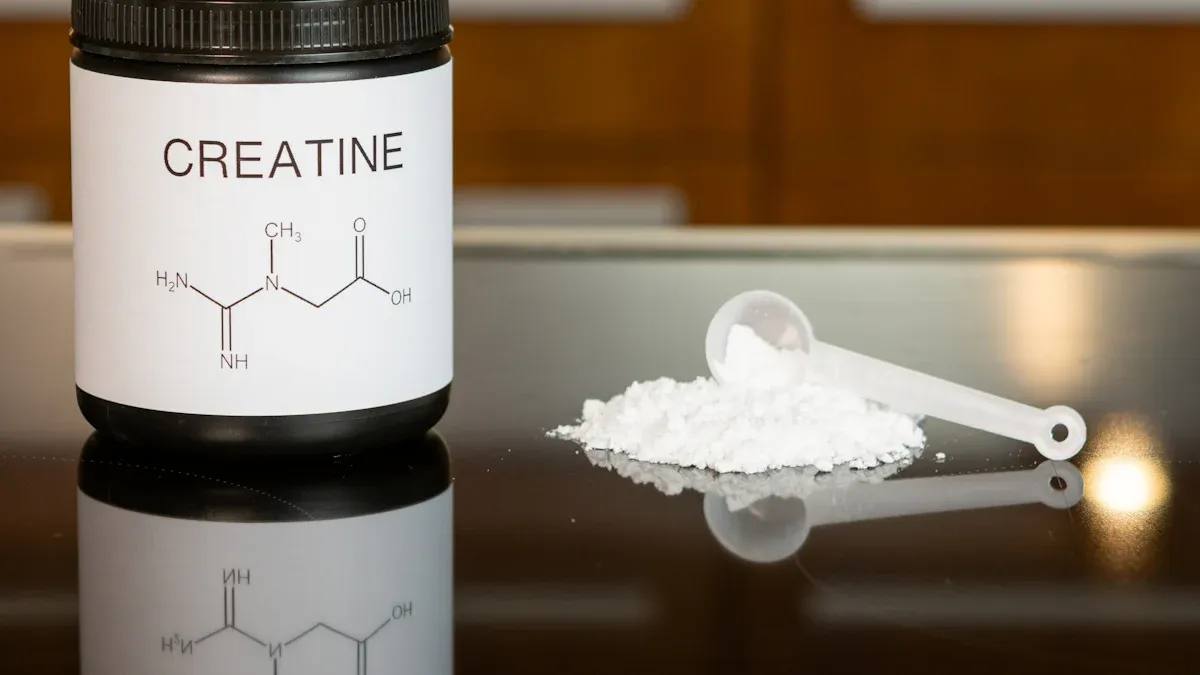
Step-by-Step Guide
You can follow a simple process to load creatine for brain health. This method helps you reach higher creatine levels quickly and safely.
Choose Your Daily Dose
Start with 20 to 25 grams of creatine each day. You may adjust this amount based on your body weight and activity level.Split the Dose
Divide your total daily intake into four or five smaller servings. Smaller doses help your body absorb creatine better and reduce stomach discomfort.Plan Your Schedule
Take each serving at regular intervals. Many people take creatine around workout times, but you can spread doses throughout the day.Monitor Your Response
Pay attention to how your body feels. If you notice bloating or stomach upset, you can lower the dose or take it with food.Switch to Maintenance
After five to seven days, move to a lower daily dose. This step keeps your creatine levels high without overloading your system.
Tip: Drinking plenty of water during creatine loading can help your body process the supplement and reduce side effects.
Dosage and Duration
You need the right dose and timing to get the most brain benefits from creatine. Studies show that higher doses work best for raising brain creatine levels.
Most people use 20 grams per day for five to seven days during the loading phase.
Some studies use up to 25 grams per day, especially for larger individuals.
You may see cognitive improvements after one week, but some studies continue loading for up to four weeks.
Phase | Dosage | Duration |
|---|---|---|
Loading Phase | 5-7 days | |
Maintenance Phase | 3-5 g (0.03 g/kg/day) | Daily |
Creatine supplementation can increase brain creatine levels by 3% to 10%. You may respond differently than others, so results can vary. Doses of 20 grams or more often lead to the best increases in brain creatine.
Note: Some people do not notice changes after one week. You may need a longer loading phase or higher dose for best results.
Maintenance
After the loading phase, you need to keep your creatine levels steady. The maintenance phase uses a lower daily dose.
Phase | Dosage (g/day) | Duration | Notes |
|---|---|---|---|
Loading Phase | 15-20 | 3-7 days | High-dose for initial uptake. |
Maintenance Phase | 3-10 | 1-3 months | Recommended for sustained effects on brain health. |
Neural Uptake | <5 | N/A | Short supplementation or low doses may not significantly affect levels. |
You should take 3 to 5 grams of creatine each day during maintenance. Some people use up to 10 grams per day for longer periods. This routine helps you keep higher brain creatine levels and supports ongoing cognitive health.
Tip: Consistency matters. Take your maintenance dose every day, even on rest days, to keep your creatine stores full.
Medical Disclaimer:
You should always talk to your healthcare provider before starting creatine or any supplement. Creatine may not be safe for everyone. Only use creatine based on verified facts and professional advice.
Best Type
When you choose a creatine supplement, you see many options. Each type has unique features. You want the best type for brain health and easy loading.
Popular Types of Creatine
Creatine Monohydrate
You find this type in most stores. Researchers have studied it for decades. It mixes well with water and costs less than other forms. You absorb it easily, and it raises your brain creatine levels.Creatine Hydrochloride (HCl)
This type dissolves quickly. Some people say it causes less stomach discomfort. You may need a smaller dose to get the same effect. Fewer studies focus on brain benefits with HCl.Buffered Creatine (Kre-Alkalyn)
Manufacturers claim this type resists breakdown in your stomach. You may see less bloating. Research does not show clear advantages for brain health.Creatine Ethyl Ester
You see this type advertised for better absorption. Studies show it does not work better than monohydrate. You may waste money on this form.Micronized Creatine
This is creatine monohydrate with smaller particles. You mix it easily in drinks. It works the same as regular monohydrate.
Comparing Creatine Types
Type | Brain Benefit Evidence | Cost | Ease of Use | Side Effects |
|---|---|---|---|---|
Monohydrate | Strong | Low | Easy | Mild, rare |
Hydrochloride (HCl) | Limited | Medium | Easy | Less bloating |
Kre-Alkalyn | Weak | High | Easy | Mild, rare |
Ethyl Ester | Weak | High | Easy | More stomach upset |
Micronized Monohydrate | Strong | Medium | Very easy | Mild, rare |
Tip: You get the best results for brain health with creatine monohydrate. You save money and use a product backed by research.
How to Choose
You want a supplement that works well and fits your budget. Creatine monohydrate gives you the most proven brain benefits. You find it in powder or capsule form. You mix it with water, juice, or a smoothie. You absorb it easily, and you reach high brain creatine levels with loading.
If you have stomach discomfort, you can try micronized creatine or creatine HCl. These types dissolve faster and may cause less bloating. You should avoid creatine ethyl ester and buffered creatine. They cost more and do not work better for your brain.
Medical Disclaimer:
You should always talk to your healthcare provider before starting creatine or any supplement. Only use creatine based on verified facts and professional advice.
Safety and Side Effects
Medical Disclaimer:
This information is for educational purposes only. It does not replace medical advice. Always talk to your healthcare provider before starting creatine or any supplement.
Common Side Effects
You may experience some side effects when you start creatine loading. Most people tolerate creatine well, but a few issues can appear, especially during the loading phase. The table below shows the most common side effects reported in clinical trials:
Side Effect | Description |
|---|---|
Gastrointestinal discomfort | You might feel bloating, cramps, diarrhea, or nausea, especially if you take large doses. |
Kidney stress | You could see a rise in blood creatinine levels. This usually does not mean kidney damage if you are healthy. |
Muscle cramping | Some people report cramps, but studies do not always confirm this effect. |
Water retention | You may notice weight gain from extra water stored in your muscles. |
Electrolyte imbalances | You could have changes in sodium, potassium, or magnesium, especially if you do not drink enough fluids. |
Most side effects are mild and go away when you lower your dose or take creatine with food. Drinking plenty of water helps reduce discomfort.
Who Should Avoid
Creatine is not safe for everyone. You should avoid creatine loading if you belong to one of these groups:
Children and adolescents under 19 years old. Safety for this age group is not clear.
People with pre-existing kidney conditions. There are reports of kidney health getting worse after creatine use in these cases.
If you have any health problems or take medication, always check with your doctor first.
Interactions
Creatine can interact with some drugs and supplements. You need to know about these interactions to stay safe. The table below lists some medications that may interact with creatine:
Drug Name | Interaction Classification |
|---|---|
Cimetidine | Moderate |
Entecavir | Moderate |
Pemtrexed | Moderate |
Probenecid | Minor |
Trimethoprim | Minor |
Trospium | Minor |
You may also see interactions with these drugs:
Acemetacin
Aspirin
Benazepril
Celecoxib
Cyclosporine
Diclofenac
Enalapril
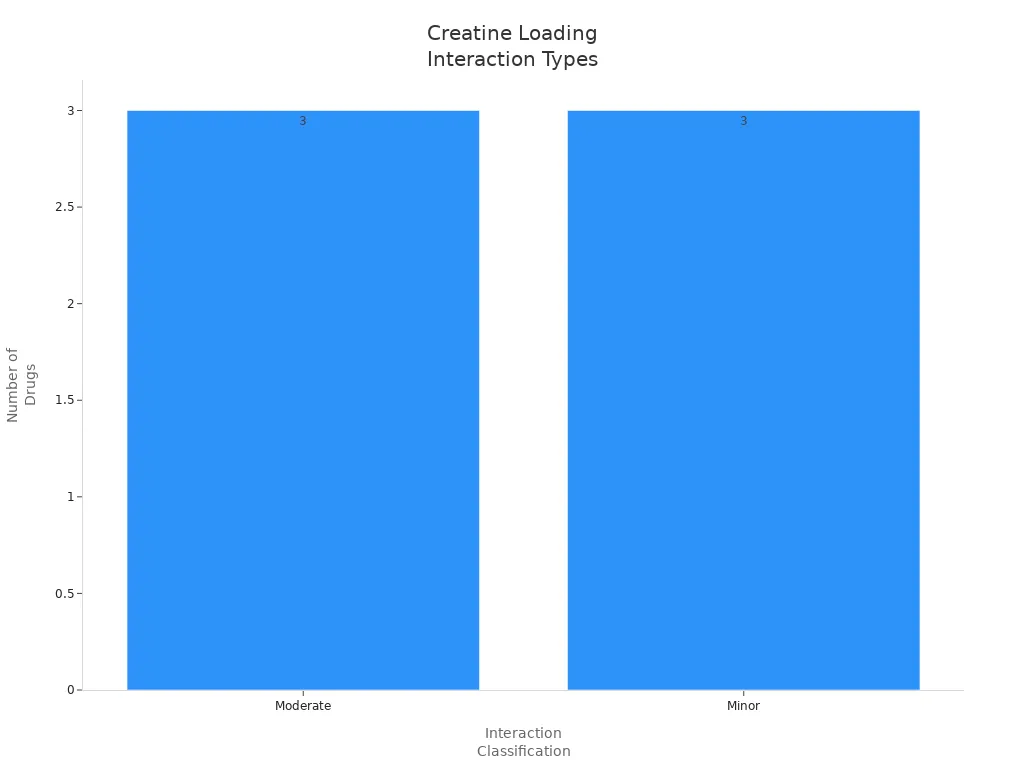
Creatine may increase the risk of kidney problems when you take it with nonsteroidal anti-inflammatory drugs (NSAIDs) like ibuprofen or celecoxib. Caffeine might also reduce the effectiveness of creatine by blocking its energy-boosting effects.
Tip: Always review your medications and supplements with your healthcare provider before starting creatine. This helps you avoid unwanted side effects and interactions.
Practical Tips
Maximizing Benefits
You want to get the most out of creatine loading for your brain. Start by choosing creatine monohydrate, which researchers recommend for cognitive enhancement. Take a consistent daily dose of 3–5 grams. This routine helps you maintain high creatine levels in your brain.
Pair your supplementation with a balanced diet. Eating enough protein, fruits, and vegetables supports your overall health. Good nutrition works together with creatine to boost your mental performance.
Consult a healthcare professional before you begin. This step is important if you are a woman, vegan, or have a medical condition. A dietitian can help you plan your intake and avoid problems.
Here are practical strategies to maximize your results:
Take creatine at the same time each day for steady levels.
Drink plenty of water to help your body absorb creatine.
Combine creatine with regular exercise to support both brain and muscle health.
Eat a variety of foods to supply other nutrients your brain needs.
Talk to your doctor or dietitian before starting, especially if you have health concerns.
Tip: Consistency matters. Missing doses can lower your creatine stores and reduce benefits.
Tracking Progress
You can track your progress to see how creatine affects your brain and body. Keep a journal or use an app to record changes. This habit helps you notice improvements and spot any side effects.
Monitor your cognitive performance by noting how well you focus, remember, and solve problems. Write down your mood and energy levels each day. If you exercise, record your training results. You may see faster recovery and better performance.
Track these areas for a complete picture:
Record weights lifted and repetitions during resistance training.
Note changes in body weight, muscle mass, and body fat percentage.
Observe how quickly you recover between workouts.
Time your sprints or high-intensity drills to measure speed.
Note: Tracking helps you see patterns and adjust your routine for better results.
Troubleshooting
You may face challenges during creatine loading. If you feel bloated or have stomach discomfort, try splitting your dose into smaller servings. Take creatine with food to reduce nausea. Drink extra water to prevent cramps and support kidney health.
If you miss a dose, take it as soon as you remember. Do not double up the next day. If you notice side effects, lower your dose or pause supplementation. Always check with your healthcare provider if problems continue.
Common issues and solutions:
Problem | Solution |
|---|---|
Stomach upset | Take with food, split doses |
Bloating | Drink more water, lower dose |
Missed dose | Take soon, do not double up |
No improvement | Track progress, consult doctor |
Medical Disclaimer:
This information is for educational purposes only. Always consult your healthcare provider before starting creatine or any supplement. Creatine may not be safe for everyone. Only use creatine based on verified facts and professional advice.
When to Seek Help
You want to use creatine safely and get the most brain benefits. Sometimes, you may notice changes or problems that need attention. Knowing when to seek help protects your health and helps you make smart choices.
Watch for These Warning Signs:
You feel severe or ongoing stomach pain.
You notice swelling in your hands, feet, or face.
You see blood in your urine or have trouble urinating.
You experience muscle cramps that do not go away.
You feel dizzy, confused, or very tired for no clear reason.
You develop a rash, itching, or trouble breathing after taking creatine.
If you notice any of these symptoms, stop taking creatine and contact your healthcare provider right away.
Tip: Mild side effects like bloating or mild stomach upset often go away when you lower your dose or take creatine with food. Severe or lasting symptoms need medical attention.
Check with Your Doctor If:
You have a history of kidney, liver, or heart problems.
You take prescription medications, especially for blood pressure, diabetes, or pain.
You are pregnant, breastfeeding, or under 19 years old.
You plan to use creatine for a long time or at high doses.
You have a chronic illness or take multiple supplements.
Your doctor can help you decide if creatine is safe for you. Bring a list of all your medications and supplements to your appointment.
Situations That Need Immediate Help:
Symptom | Action to Take |
|---|---|
Trouble breathing | Call 911 or emergency services |
Chest pain | Seek emergency care |
Severe allergic reaction | Get medical help right away |
Sudden confusion | Contact a doctor immediately |
Note: You should never ignore serious symptoms. Quick action can prevent bigger health problems.
Stay Informed and Proactive
You play the biggest role in your health. Track how you feel each day. Write down any new symptoms or changes. Share this information with your healthcare provider. Ask questions if you feel unsure about creatine or any supplement.
Medical Disclaimer:
This blog provides general information for educational purposes only. It does not replace professional medical advice. Always consult your healthcare provider before starting creatine or any supplement. Seek immediate help if you have severe or unusual symptoms.
Creatine loading can support your brain health. You may notice sharper memory, better reasoning, and improved mental clarity. Research shows creatine helps replenish brain energy, supports mitochondria, and may reduce inflammation. You can follow these steps:
Start with 5 grams of creatine, four times a day for one week.
Maintain with 3–5 grams daily. Larger athletes may need 5–10 grams.
Track your progress and consult your healthcare provider.
Medical Disclaimer: Always talk to your doctor before starting creatine. Use only verified facts to guide your choices.
FAQ
What is the best time to take creatine for brain benefits?
You can take creatine at any time of day. Many people prefer mornings or after meals. Consistency matters most. Take your dose at the same time each day for best results.
Can vegetarians and vegans benefit more from creatine loading?
Yes. You may see greater improvements because plant-based diets have less creatine. Your brain and muscles can store more when you supplement.
How long does it take to notice brain benefits from creatine?
You might notice changes in memory or focus within one to two weeks. Some people need up to four weeks. Track your progress to see what works for you.
Is creatine safe for long-term use?
Research shows that healthy adults can use creatine safely for months or even years. You should always follow recommended doses and check with your doctor before starting.
Will creatine make you gain weight?
You may gain a small amount of weight from water retention in your muscles. This effect is normal and not harmful. Most people do not gain fat from creatine.
Can creatine help with stress or lack of sleep?
Yes. Studies show that creatine can support your brain during stress or sleep loss. You may feel less mental fatigue and stay more alert.
Medical Disclaimer:
This FAQ provides general information only. Always consult your healthcare provider before starting creatine or any supplement. Use only verified facts to guide your choices.
